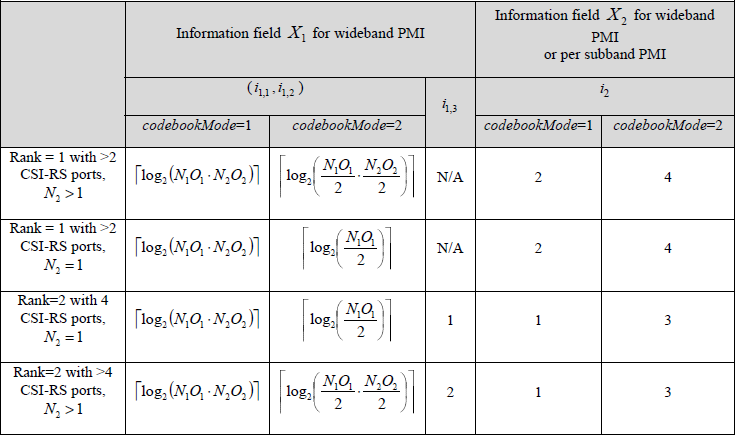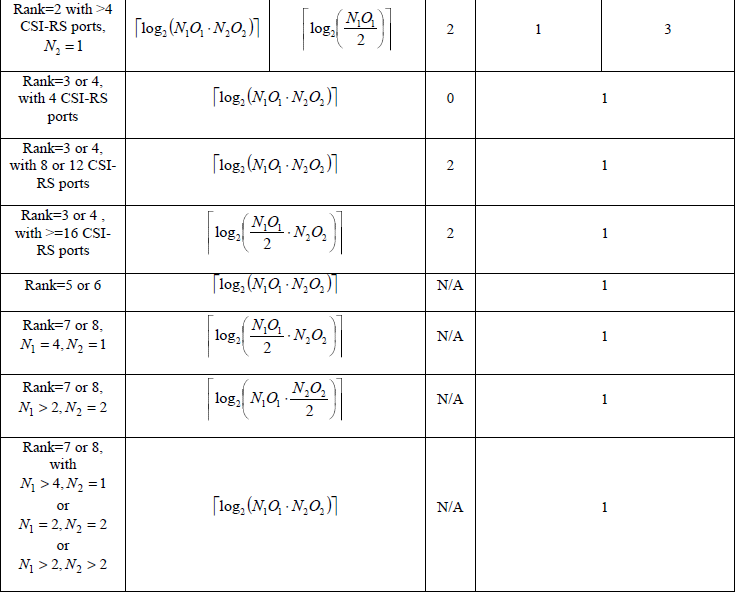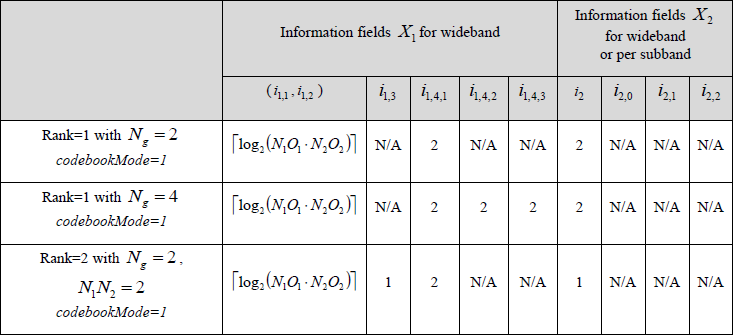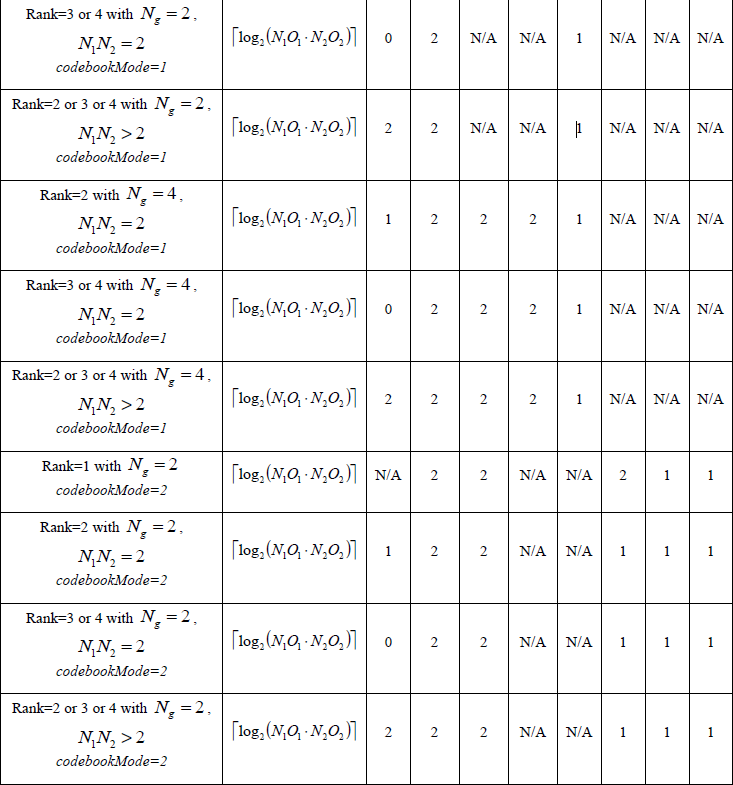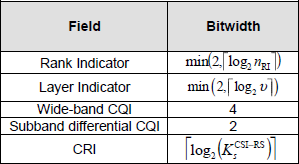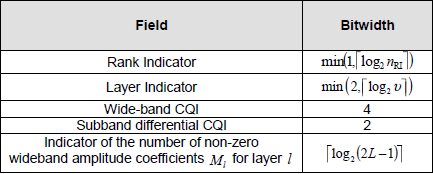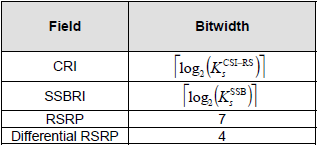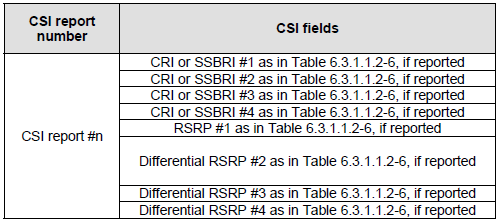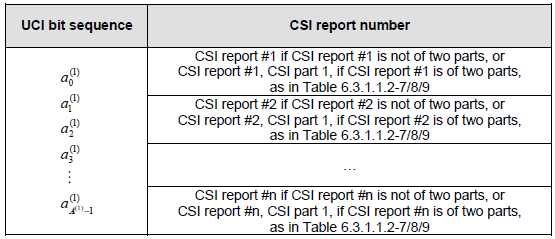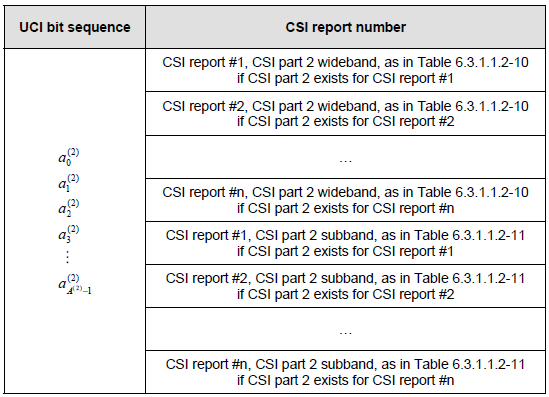|
|
|||||||||||||||||||||||||||||||||
|
PUCCH is an uplink physical channel that carries UCI (Uplink Control Information). As DCI (Downlink Control Information) is carried by PDCCH, UCI is carried by PUCCH. A big difference between DCI and UCI is that UCI can be carried either by PUCCH or PUSCH depending on situation whereas DCI can be carried only by PDCCH (not by PDSCH in any case). Contents of UCIThe contents of UCI is as follows (this is same as LTE). Not all of these are carried by single UCI. Depending on situation, sometimes only CSI is carried, sometimes ACK/NACK only, sometimes SR only and sometimes CSI & ACK/NACK etc.
These three elements are combined in various way and reported to a Network via uplink physical channel : PUCCH or PUSCH. The possible combinations of these elements can be listed as below. (NOTE : Most of these UCI can be carried by either PUCCH or PUSCH, but UCI with SR can be carried by PUCCH only based on 38.212 - 6.3.1.1 and 6.3.2.1) i) HARQ ACK/NACK only ii) SR only iii) HARQ ACK/NACK + SR iv) CSI only v) CSI + SR vi) HARQ ACK/NACK + CSI vii) HARQ ACK/NACK + SR + CSI Bit Structure of UCIBit structure of UCI would be simple and obvious when it carries HARQ ACK/NACK and SR, but CSI bit structure of CSI is so complicated and would take a long time / effort to get the detailed understanding. All the details of UCI bit structure is specified in 38.212-6.3. < Bit Structure for HARQ ACK/NACK >Overall bit structure for this case would be relatively straightforward. When CBG is not configured, one bit is allocated for one codeword per carrier. When CBG is configured, one bit is allocated for one CB per carrier. The structure gets a little complicated when multiple report are multiplexed according to TDD structure, but overall the structure would not get as complicated as CSI bit structure case. < Bit Structure for SR >Nothing much to say about this. It is just that one bit is allocated for each SR. < Bit Structure for CSI >This is the most complicated part. The overall structure varies depending on the type of CSI (e.g, PMI or RI/LI/CQI/CRI or CRI/SSBRI/RSRP) and the detailed structure for each CSI type varies further based on some additional factors.
UCI on PUCCH - CSI Only< 38.212-Table 6.3.1.1.2-1: PMI of codebookType=typeI-SinglePanel >
< 38.212-Table 6.3.1.1.2-2: PMI of codebookType= typeI-MultiPanel >
< 38.212-Table 6.3.1.1.2-3: RI, LI, CQI, and CRI of codebookType=typeI-SinglePanel >
< 38.212-Table 6.3.1.1.2-4: RI, LI, CQI, and CRI of codebookType=typeI-MultiPanel >
< 38.212-Table 6.3.1.1.2-5: RI, LI, and CQI of codebookType=typeII or typeII-PortSelection >
< 38.212-Table 6.3.1.1.2-6: CRI, SSBRI, and RSRP >
< 38.212-Table 6.3.1.1.2-7: Mapping order of CSI fields of one CSI report, pmi-FormatIndicator=widebandPMI and cqi-FormatIndicator=widebandCQI >
< 38.212-Table 6.3.1.1.2-8: Mapping order of CSI fields of one report for CRI/RSRP or SSBRI/RSRP reporting >
< 38.212-Table 6.3.1.1.2-9: Mapping order of CSI fields of one CSI report, CSI part 1, pmi-FormatIndicator=subbandPMI or cqi-FormatIndicator=subbandCQI >
< 38.212-Table 6.3.1.1.2-10: Mapping order of CSI fields of one CSI report, CSI part 2 wideband, pmi-FormatIndicator= subbandPMI or cqi-FormatIndicator=subbandCQI >
< 38.212-Table 6.3.1.1.2-11: Mapping order of CSI fields of one CSI report, CSI part 2 subband, pmi-FormatIndicator= subbandPMI or cqi-FormatIndicator=subbandCQI >
< 38.212-Table 6.3.1.1.2-12: Mapping order of CSI reports to UCI bit sequence a0 , a1, a2 , a3 ,..., aA−1 , without two part CSI report(s) >
< 38.212-Table 6.3.1.1.2-13: Mapping order of CSI reports to UCI bit sequence with two-part CSI report(s) >
< 38.212-Table 6.3.1.1.2-14: Mapping order of CSI reports to UCI bit sequence with two-part CSI report(s) >
Reference
|
|||||||||||||||||||||||||||||||||
